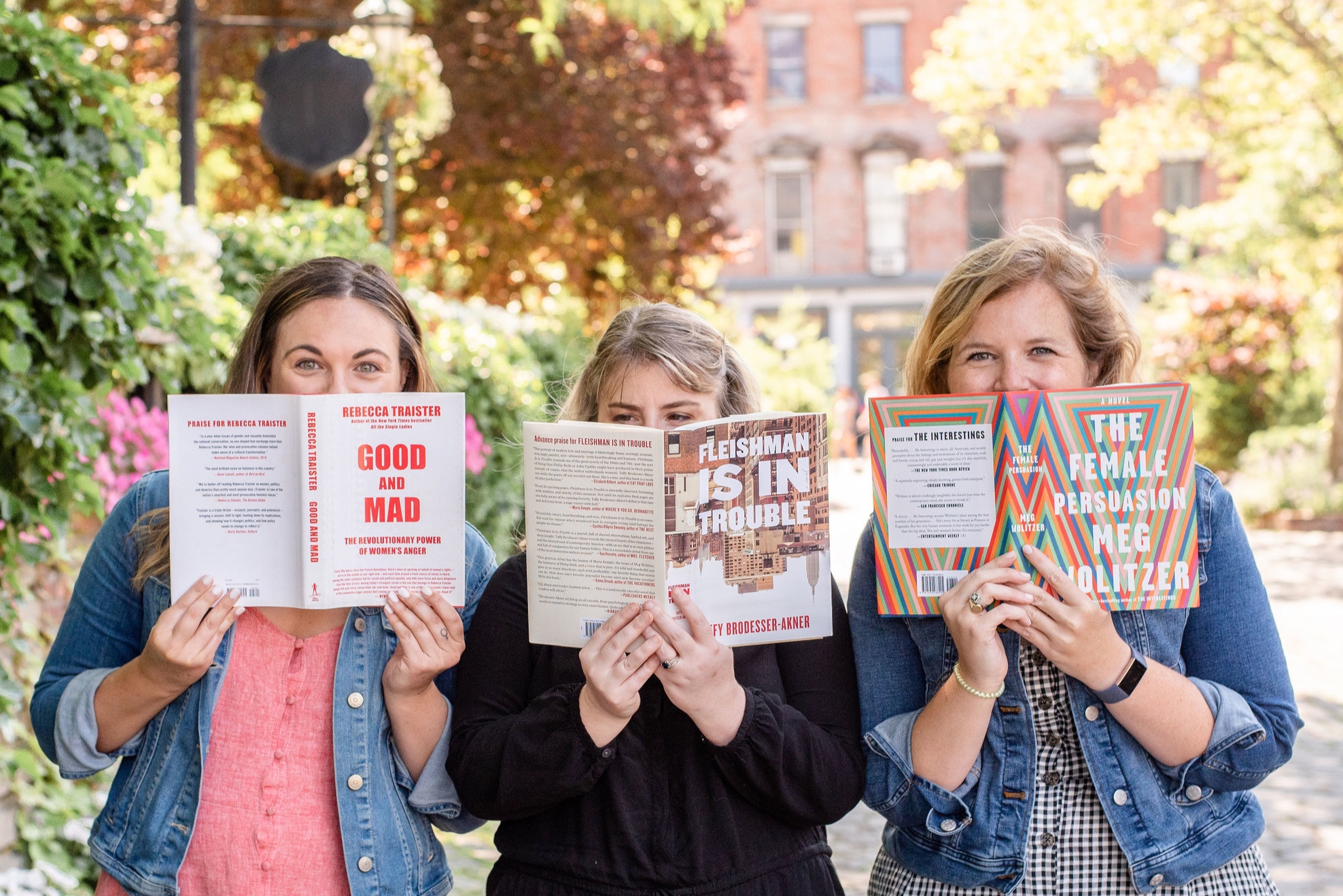Book Review: "Recipe for a Perfect Wife" by Karma Brown
“Recipe for a Perfect Wife” by Karma Brown
Synopsis: When Alice Hale leaves a career in publicity to become a writer and follows her husband to the New York suburbs, she is unaccustomed to filling her days alone in a big, empty house. But when she finds a vintage cookbook buried in a box in the old home's basement, she becomes captivated by the cookbook’s previous owner--1950s housewife Nellie Murdoch. As Alice cooks her way through the past, she realizes that within the cookbook’s pages Nellie left clues about her life--including a mysterious series of unsent letters penned to her mother.
Soon Alice learns that while baked Alaska and meatloaf five ways may seem harmless, Nellie's secrets may have been anything but. When Alice uncovers a more sinister--even dangerous--side to Nellie’s marriage, and has become increasingly dissatisfied with the mounting pressures in her own relationship, she begins to take control of her life and protect herself with a few secrets of her own. - Dutton Books
Rating (out of 5): 3.75
Trigger warnings: domestic abuse, rape, murder
Review: Fair warning — this is going to be a difficult one for me to review, both because we are spoiler-free and because even though I’ve been thinking about it since I started it, I’m not sure how to classify it. It isn’t really a thriller, though there are some thriller aspects. It isn’t chick-lit, and it isn’t literary fiction, and it touches on issues of feminism but only a little. Dutton Book calls it Women’s Fiction, which is an (annoying) marketing ploy, but I’d call it a domestic mystery. Don’t worry, I’m not quitting my day job to go into marketing.
In 2018, Alice Hale is a late-20s New Yorker married to the love of her life, moving to the suburbs to write a book as he is in an upwardly mobile career as an actuary. They buy the fully-furnished house of Nellie Murdoch, who lived there with her husband in the 1950s. The novel is a dual-narrative: we bounce between Alice and Nellie’s lives as they both try to adjust to the role of housewife in two different eras.
Both Nellie and Alice’s lives are great on paper, but once you pull it back, cracks start to show. Alice learns Nellie’s story through boxes of papers left in the basement, and starts to emulate her in bizarre ways. We also learn Nellie’s story through the letters she wrote to her mother during the course of her marriage. Of course, if you read the trigger warnings and my hemming and hawing over how to classify this book, you know that it isn’t all as happy as it seems, but I really can’t get into that.
The best part of the book was the not-even-subtle feminist commentary done by Karma Brown throughout. It is only fairly recently that women were allowed to have public ambitions in working outside the home, and it’s something that I often forget in 2020. Through the two narratives, she examines female identity in a way that I didn’t expect when I picked up this book — in both expectation and reality. Ultimately, both Alice and Nellie reclaimed their identities, but wow, did they go different ways about it.
I enjoyed Nellie’s story, but I really didn’t like Alice, and I know that impacted my enjoyment of the book. All we hear about Alice is that she was driven and ambitious, but then she spends most of the book just floundering and hurting those closest to her. On paper, Nellie is the “bad” one of the two, but I really felt the motivation behind all of her actions, and Alice just seemed to…have no reasons for her behavior besides a motivation to not look bad.
One of my favorite aspects of the book were the “advice” given beneath each of the chapter headings in the Alice storyline, as wow, I am so glad that’s not what I was told as a child — though I grew up in the Deep South, I was never encouraged to only aim for being a wife and mother, as can be seen by the fact that I’m single in my early 30s. It is sometimes jarring to remember how far women have come in the last 60 years, but it’s important to remember how far we have to go.
TL;DR: A look at two women in the domestic sphere across two eras, both dealing with the difficulties of being a smart and ambitious women stuck at home in very different ways.
If You Liked This, Try These:
"Gone Girl" by Gillian Flynn (yes, way more dark and twisty, but some similarities between protagonists)
If you click on one of the links in this article and make a purchase, She’s Full of Lit may receive a small commission. It doesn’t add anything to your price — we promise! Thanks so much for your support.



